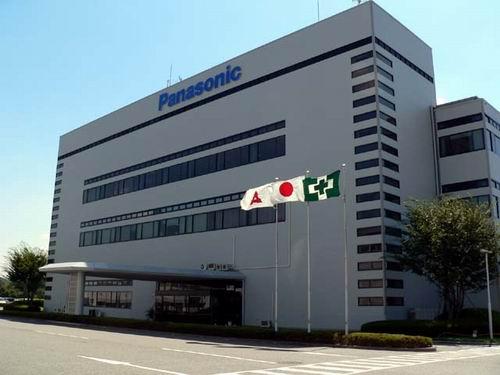
In this complex business world, the word integrity is like the lifeblood of enterprise survival, once broken, it may trigger a chain reaction, pushing the enterprise to the abyss of no recovery. However, it is shocking that Japan's Panasonic Electric Group, once a world-renowned home appliance giant, has been suspected of 93 fraudulent activities, affecting 5,200 products, with a cumulative profit of 8.36 trillion yen over a period of 44 years. This news is like a bombshell, instantly detonated the entire business circle, how is Panasonic on this road of no return?
When it comes to Panasonic, many people first think of the words "durable" and "excellent quality". However, who would have thought that the former home appliance giant would be caught in such a long fraud scandal? This is not only a gross betrayal of consumer trust, but also a flagrant violation of business ethics.
Panasonic's fraud is not a matter of overnight, but as long as 44 years of "secret". In these long years, Panasonic seems to have formed a "tacit understanding", whether it is the chairman at a high level, or the small staff at the grassroots, are silent about the fraud case. As if they were bound by an invisible force, they chose collective silence. This atmosphere of "extra unity" allowed Panasonic to go further and further on the road of fraud, and eventually led to today's bad results.
Panasonic's fraud is inextricably linked to its corporate culture and the lifetime employment system that is common in Japanese companies. In Japan, many companies have a lifetime employment system, which means that once employees join the company, they are basically in the same boat. In such an environment, employees often develop a sense of loyalty that is "unwavering", even in the face of the company's fraud, they choose to remain silent.
However, this sense of loyalty has become a "double-edged sword" to some extent. On the one hand, it can indeed enhance the sense of belonging and cohesion of employees, and promote the stable development of enterprises; On the other hand, when enterprises are faced with moral dilemmas, this sense of loyalty may become a stumbling block that prevents enterprises from facing up to the problem and correcting mistakes. In Panasonic's case, it was this "sense of loyalty" that led employees to opt for collective silence and even participate in the fraud, thus exacerbating the problem.
With the passage of time, Panasonic's fake behavior began to gradually surface. The disclosure of all this has been inextricably linked to the rise of China's home appliance manufacturing industry. With the rapid development of China's home appliance manufacturing industry, the market competition is becoming increasingly fierce, and consumers' requirements for product quality are becoming higher and higher. In this context, Panasonic's fraud began to gradually expose its drawbacks.
It is in this context that the internal contradictions of Panasonic began to intensify. Some new employees are increasingly dissatisfied with the company's internal management, and they began to come forward to report that the company is suspected of fraud and cheating quality certification of many products. These sounds, though faint, were like stones thrown into a calm lake, causing ripples.
Sadly, however, these brave new employees are not getting the support and protection they deserve. Instead, they face intense pressure and threats from within the company. This pressure comes not only from the management's cover-up and suppression of the fraud, but also from the exclusion and isolation of those colleagues who are also involved in the fraud. This situation has undoubtedly left new employees feeling isolated and helpless, and has also seriously challenged the sense of justice in the whole society.
Panasonic's fraud not only seriously damaged the interests of consumers, but also caused immeasurable losses to the image and reputation of the enterprise itself. Once the guiding light of integrity is extinguished, the enterprise will fall into an endless night. The case of Panasonic is a vivid illustration.
First of all, from the point of view of consumers, Panasonic's fraudulent behavior has greatly reduced their trust in the brand. Once those who trust Panasonic products consumers, now in the face of Panasonic electronics, the heart will inevitably have doubts and unease. This lack of trust will not only make consumers more cautious and picky when choosing products, but also make Panasonic lose a large number of potential customers and market share in the future market competition.
Secondly, from the perspective of enterprises, Panasonic's fraud has also caused serious damage to its own image and credibility. The image and reputation of an enterprise are the cornerstone and guarantee of its long-term development. Once these foundations and guarantees are destroyed, the business will be in a difficult situation. Panasonic's case tells us that a lack of integrity of the enterprise is unable to foothold in the fierce market competition.
Panasonic's fraud not only violates business ethics and laws and regulations, but also seriously betrayals consumer trust. This behavior not only damages the interests of consumers, but also destroys the fair competition environment of the market. Therefore, we must deeply criticize and reflect on the fraud behavior of Panasonic.
First of all, Panasonic should face up to its own problems, have the courage to admit mistakes and assume corresponding responsibilities. However, regrettably, after the fraud was exposed, Panasonic's management did not immediately come forward to admit its mistake and apologize. On the contrary, they tried to cover up the truth and even suppressed and retaliated against the whistleblowers. This kind of behavior not only cannot restore the image and reputation of the enterprise, but also will further reduce the trust of consumers in the enterprise.
Secondly, Panasonic should strengthen internal management and establish a sound regulatory mechanism. The internal management of an enterprise is an important guarantee for its healthy development. However, in the case of Panasonic, we have seen a serious lack of internal management and confusion. This lack and confusion not only led to the occurrence and spread of counterfeiting, but also put employees in trouble and danger. Therefore, Matsushita must strengthen the attention and investment in internal management, establish a sound regulatory mechanism to ensure the healthy development of enterprises.
Finally, Panasonic should actively fulfill its social responsibilities and establish a good corporate image. The social responsibility of an enterprise is the foundation of its existence and development. However, in the case of Panasonic, we have seen its neglect and evasion of social responsibility. Such neglect and evasion not only reduce consumers' trust in enterprises, but also make society's evaluation of enterprises become negative and negative. Therefore, Panasonic must actively fulfill its social responsibilities, establish a good corporate image, and win the trust and support of consumers.

Recently, Japanese Prime Minister Sanae Takaichi announced that the central government's initial budget for the fiscal year 2026 would achieve a basic fiscal surplus for the first time since 1998, with an estimated scale of 1.34 trillion yen.
Recently, Japanese Prime Minister Sanae Takaichi announced …
In the bitter winter at the end of 2025, the smoke of the R…
Recently, the concept of "cut-off line" has frequently emer…
The release of the Federal Reserve's December meeting minut…
The Iranian Foreign Ministry issued a statement saying that…
The year-end economic assessment report of the Indian gover…